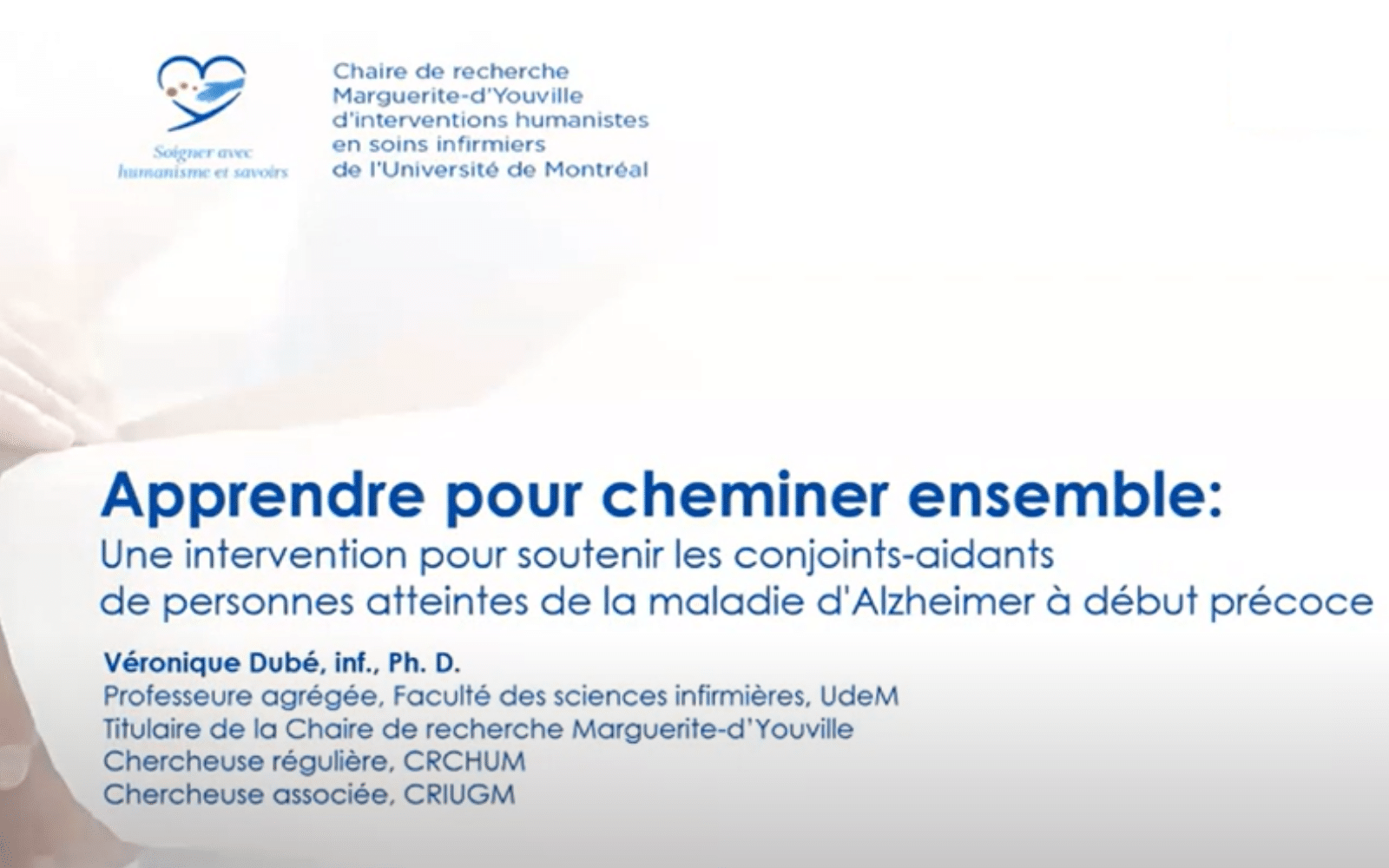The webinar is addressed at the scientific community along with anyone interested in support for the spousal caregivers of people with early-onset Alzheimer’s.
Apprendre pour cheminer ensemble : Une intervention pour soutenir les conjoints-aidants de personnes atteintes de la maladie d’Alzheimer à début précoce
This webinar (in French) presents the results of an action research approach to testing and assessing individual online psychoeducational interventions for the spousal caregivers of people with early onset Alzheimer’s disease.
Authors:
Year: 2020
Languages: French
Format: Webinar
Dimension(s) of caregiving:



Need help? →
CALL 811 (Info-Santé/Info-Social). If you need support or have concerns or questions about your health or that of a family member or friend, call 811 to speak to a nurse or psychosocial worker. Bilingual and available 24 hours a day, 7 days a week, it’s free and confidential.
To speak to a caregiver counselor about a difficult situation, ask questions or get a referral, call l’Appui’s Caregiver Support Helpline.
Bilingual; open Monday to Friday from 8 a.m. to 6 p.m.
To find community resources offering caregiving information and support near you, consult l’Appui’s Resource Directory or Proche aidance Québec's list of member organizations (in French only).

This webinar (68 min, in French) presents an action research approach to testing and assessing individual online psychoeducational interventions for the spousal caregivers of people with early onset Alzheimer’s disease. It was broadcast on November 4, 2020 as part of the Federation of Quebec Alzheimer Societies’ “Conférences mémorables” series. The presenter is Véronique Dubé, Associate Professor and holder of the Marguerite-d’Youville Research Chair in Humanistic Nursing Interventions at the Université de Montréal’s Faculty of Nursing. Topics covered are the specific context of spousal caregiving, caregiver needs, the personal, professional, social and financial repercussions, and the intervention approach developed to support caregivers. The presentation concludes with the findings of the testing and assessment process.
